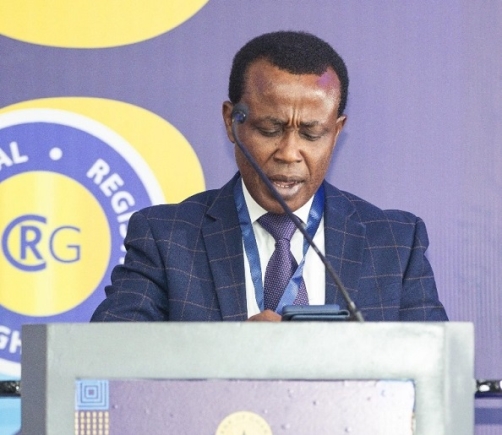
BoG pushes for interoperable financial infrastructure
The Second Deputy Governor of the Bank of Ghana (BoG), Matilda Asante-Asiedu, has announced plans to integrate the collateral registry with other digital platforms such as credit bureaus, digital identity systems and e-government platforms to enhance financial inclusion and efficiency.
This strategic move is crucial for meeting the growing demand for innovative credit solutions as the country's economy becomes increasingly digitised, requiring more sophisticated and accessible financial services.
The collateral registry, which was established by Parliament as the first of its kind in Africa, aims to promote transparency in the credit delivery system.
Addressing participants at the day-two event of the 15th anniversary of the Collateral Registry Department in Accra, Mrs Asante-Asiedu stated that the goal was to build a fully interoperable financial infrastructure that supports real-time data-driven decision-making and inclusive access to finance.
“This limited the potential of a vital segment of our economy. By providing a centralised electronic platform for registering and searching security interests in movable property, the registry has empowered lenders to expand the scope of their credit portfolios, enabling borrowers, especially those without traditional land-based collateral, to unlock the value of their movable assets,” the second deputy governor said in a speech read by the Director of Regional Branch Co-ordinating Office at the central bank, Dr Settor Amediku.
Visionary step
She stated that the establishment of the collateral registry was a bold and visionary step introduced to address a major challenge in the credit ecosystem, the lack of a transparent, efficient and reliable framework for the use of movable assets as collateral.
She said prior to the framework's establishment, micro, small and medium enterprises (MSMEs) faced significant challenges in accessing credit due to their inability to use movable assets like machinery, inventory or receivables as collateral.
She said the success of the Collateral Registry relies heavily on the active participation and collaboration of key stakeholders, including financial institutions, law firms, borrowers, regulators, development partners and the private sector.
“Let me take this opportunity to thank you all for your unwavering support and collaboration over the years. Your contributions have been instrumental in making the registry transformative,” she added.
Collaboration
The Head of the Collateral Registry Department of the BoG, Fred Asiama Koranteng, urged stakeholders to collaborate in developing a more robust and secure transactions framework for Ghana's financial sector.
He said the need for stakeholders' continued support to ensure the collateral registry remains effective in fostering a secure, reliable and efficient lending environment.
“Let’s harness the momentum from this celebration to drive goodness and innovation in the next decades,” he said.
Mr Koranteng said the registry had helped unlock the potential of movable assets, including livestock, equipment, vehicles and inventory as viable forms of collateral.
He added that the registry, over the period, saw a significant increase in the registration of security interests on the registry platform from 10,413 in 2010 to 1.4 million at the end of 2024, representing an average growth rate of 31.5 per cent.
